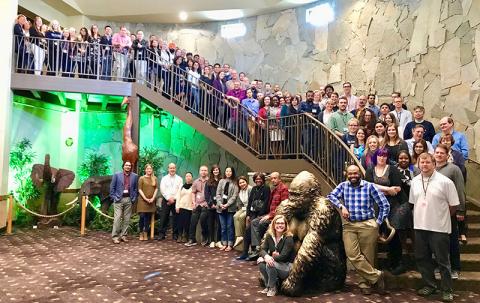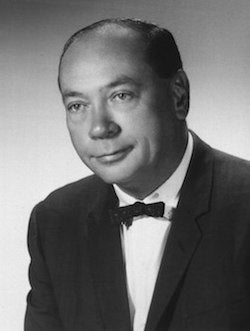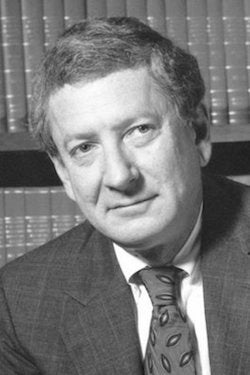The Department of Pharmacology at Case Western Reserve University has a rich history, impressive national rankings for NIH funding, and a strong foundation for future discovery. Central to the success that the department has enjoyed as it endeavors to lead in the areas of visual science, metabolic regulation and signal transduction, structural biology, and cancer biology and therapeutics research are the people who work to that end. A diverse faculty, graduate students, post-doctoral fellows and staff from around the globe create the essential competitive edge in an increasingly borderless industry.
The Department of Pharmacology at Case Western Reserve University School of Medicine enjoys a tradition of excellence in basic science research. Our legacy includes the award of the Nobel Prize in Physiology or Medicine in 1971 to Earl W. Sutherland Jr. for his discovery of the now famous "intracellular messenger" cAMP.
Several generations of scholars have continued this tradition through their nationally and internationally recognized contributions to the biomedical sciences. In 1994, Alfred Goodman Gilman, an M.D., Ph.D. graduate of the Department, was awarded the Nobel Prize in Physiology or Medicine for his characterization of signal transduction via G-proteins.
In 1998 the Nobel Prize in Physiology or Medicine was awarded to another alumnus of the Department, Ferid Murad, M.D., Ph.D., recognizing his discovery of the role of nitric oxide (NO) in intercellular signaling.
The research mission of the Department of Pharmacology builds upon this heritage by seeking to discover specific mechanisms that control physiological processes at cellular and molecular levels. Recently recruited faculty members have joined many long-term members of the Department to create a broad-based research environment and collegial atmosphere that recognizes the special value of students in training and fosters their development. Our research focuses on the future. From molecular and structural biology to signal transduction in cancer, vision, and other areas, the modern Department of Pharmacology at CWRU provides a scholarly continuum that uses an understanding of molecular interactions along with cutting edge structural biology technologies to unravel clinically relevant drug targets.
Because modern pharmacology is a multifaceted discipline, we have created a rich interdisciplinary training program in pharmacological sciences by joining our primary faculty with affiliated faculty from other departments. This ensures that our research and educational offerings have the necessary breadth and depth for training the newest generation of research pharmacologists.





